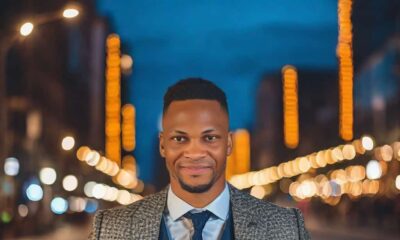Features
Titilola Vivour-Adeniyi is Dedicated to Making Lagos State Safe From the Terror of Rape & Domestic Violence
A public servant with over 10 years professional experience, Titilola Vivour-Adeniyi currently works as the coordinator of the Lagos State Domestic Violence Response Team (DSVRT). Titilola describes herself as “a daughter, a woman, a wife, a mother, a christian, a legal practitioner and a public administrator.” However, these are but a few ways to describe a woman who has, over the past four years, ensured that Lagos State paid more than lip service to domestic violence. She has worked in different capacities within the state to improve the well-being of women in danger. Initiated by the Lagos State government, DSVRT has been at the forefront of tackling the problem of domestic violence in Lagos State. In 2018, the state government secured over nine convictions for sexual violence cases. Working with young school boys and girls, DSVRT has continued to work tirelessly, against all odds. Today, we chat with Titilola about her work, her team and the progress they’re making toward a safer state.
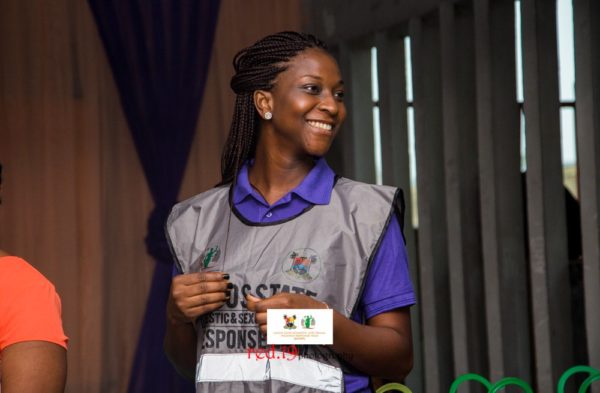
Thank you for talking to us today, Titilola. Let’s jump right into it. What does your role as coordinator entail?
I manage the daily operations and deal with all responder agencies of sexual violence, child abuse and domestic violence.
Please walk us through the process of how your organization works: from when calls are received by your office, to the resolution of a case.
Asides from calls, we have a USSD short code *6820# that we receive reports on. Our response would depend on the nature of case reported. For instance, if it’s a case of sexual violence, the first referral would be made to receive medical attention as sexual violence cases is extremely time sensitive in nature. We would refer to the closest Primary Health Care Centre or to the Sexual Assault Referral Centers in Lagos State. If the person has received medical attention, we would be interested in knowing if the case has been reported to the police station and if yes, what the status of the investigation. At this point, we may ask the client to come into the office, so that a Survivor Advocate can be attached to the case. This is to assist the police in investigation, ensure the case is charged to court. The duplicate case file is forwarded to the Directorate of Public Prosecutions in the Ministry of Justice and justice is served. Throughout this process, we have to manage the survivor’s expectations. Some survivors believe that judgment would be given the day after the case is reported. Whilst this would be most ideal, clients are counseled on the administration of justice process and ensured of the fact that we are working together to ensure justice is served.
a good majority of survivors of domestic violence do not want their partners prosecuted. They rather want the beating or the abuse to stop. Some want the abuser to be restrained from causing further havoc.
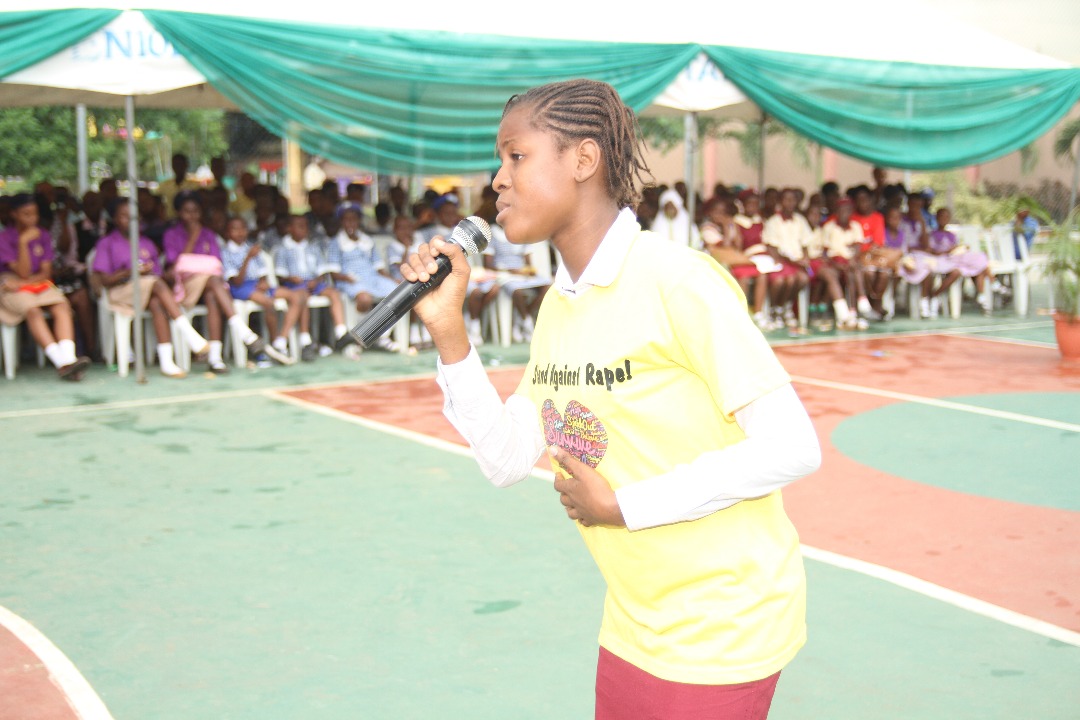 How often is justice served? Have there been any successful convictions on rape and domestic violence since the inception of DSVRT?
How often is justice served? Have there been any successful convictions on rape and domestic violence since the inception of DSVRT?
Yes. We have convictions. Last year alone, the state government secured over nine convictions for sexual violence cases. And we are certain that with the various innovations of the state government, namely, the provision of rape kits at the primary health care centers, the Lagos State DNA Forensic Centre, the Sexual Offences and Domestic Violence Courts set up to specially try such cases, we will continue to see an increase in convictions.
For domestic violence, we have approximately 10 cases in court, which the state is prosecuting, but we have since stopped tracking success by number of domestic violence cases that are prosecuted. This is because a good majority of survivors of domestic violence do not want their partners prosecuted. They rather want the beating or the abuse to stop. Some want the abuser to be restrained from causing further havoc. And as such, over the past 2 years, we have sought to make the letters of the Protection Against Domestic Violence Law, 2015, come alive. That law provides for a protection order. This in itself is not a criminal process. The law is to protect survivors who are experiencing violence and need the assistance of the court and other institutions to restrain abusers. We have ensured that in certain cases, we approach the courts on behalf of our clients to secure a restraining order. This process takes a lot of counseling of the clients and patience as unfortunately these cases are not heard expeditiously.
What you said about the victims not wanting their assailants to be prosecuted is a common notion. A lot of victims are afraid of the consequences of disclosing they’ve been abused or assaulted. In your experience, what are ways that these fears can be dissipated?
We need to re-instill confidence in the system, and this can be done with advocacy and ensuring that the few individuals that come out to report receive support.
For us at DSVRT, we are very hopeful. This is because the statistics over the past three years shows a steady increase in reporting of cases. In 2016, we attended to 450 cases: 436 females, 14 males. In 2017, a total of 1,044 cases: 141 males and 903 females, and in 2018, a total of 2,356 cases: 159 males and 2,197 females. The most important way to instill confidence is by providing succor, solutions and justice to survivors; this will encourage more people to come out and report.
we place a huge premium on ensuring that our clients receive psycho-social support, therapy, and professional counseling.
These numbers are very impressive, especially when you consider the societal constraints you have to work against. Can you share some insight into some of the challenges that the DSVRT faces?
I would say they are three-fold: resistance from the victim, the society and institutional challenges.
For the victim/survivor, we have situations where the service they indicate they require is not what we, as professionals, think is in their best interest. For instance, in a case where it is obvious to survivor advocates that death is imminent, a client may say he or she just wants the abuser to be “called and warned” or “shaken” a bit. It must be reiterated that as a survivor-centered agency, sometimes we have to respect their choices. We must, however, not forget that there is what is called public interest and these are first and foremost crimes against the state. So in certain instances, we can go ahead and institute criminal proceedings against the alleged abuser. But we don’t often do this because this process itself may further traumatize the survivor. As such, we place a huge premium on ensuring that our clients receive psycho-social support, therapy, and professional counseling. We believe this goes a long way in assisting a client reach a decision for him or herself without feeling any coercion. The effect of this is truly remarkable. This is where the client takes charge of his or her life and determines the course of their life.
As regards the society, there is still a divide. Some part of society blame the victims. They do not even equate these vices with the seriousness it deserves. The other part of the society is somewhat sympathetic to the plight of survivors. Some, however, take it a step further and act as Mandated Reporters in ensuring the case is reported anonymously. However, when it comes to the divide of society that unknowingly or knowingly, blames the victim and shields the perpetrator, one cannot imagine the level of pressure survivors face to discourage them from reporting cases to relevant institutions, force them to “withdraw” cases. This pressure can come from the client’s immediate family, landlords, religious and community leaders, or neighbors and colleagues. The individuals who are to serve as support system for survivors are often the ones that make them feel they are not doing the right thing by reporting, and that is why we have survivors drop out from the legal process of getting justice. The only solution to this is continuous advocacy and we have also a lot of NGOs doing a tireless job in this area as well. You cannot sensitize the public enough, it is a continuous evolving process.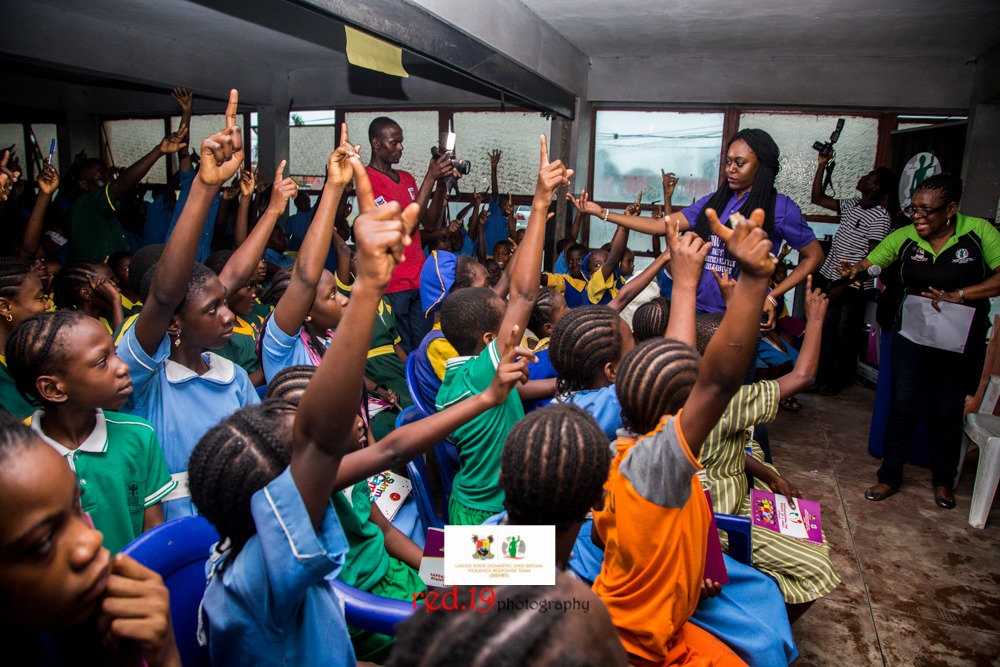 We address this by ensuring continuous sensitization and awareness of these issues. The society must come to that point where we all have a zero tolerance to sexual violence, domestic violence and child abuse. People must also realize that these vices are crimes against the state. The same way one would not usually go about begging authorities to drop a case against a suspected armed robber is the same way they should not go about begging on behalf of suspected rapists, batterers and child abusers. We must not forget that if a woman is beaten, a person is sexually assaulted or a child is abused, the state is also abused, and as such the state has every right to get justice. As such, we continue with our advocacy, training of community leaders, religious clerics who would usually serve as first responders.
We address this by ensuring continuous sensitization and awareness of these issues. The society must come to that point where we all have a zero tolerance to sexual violence, domestic violence and child abuse. People must also realize that these vices are crimes against the state. The same way one would not usually go about begging authorities to drop a case against a suspected armed robber is the same way they should not go about begging on behalf of suspected rapists, batterers and child abusers. We must not forget that if a woman is beaten, a person is sexually assaulted or a child is abused, the state is also abused, and as such the state has every right to get justice. As such, we continue with our advocacy, training of community leaders, religious clerics who would usually serve as first responders.
Finally, there are some institutional challenges. Some survivors have complained that they experience some challenges in reporting or recording cases at certain agencies, and this can be a deterrent factor in their quest for justice. Here again, the response has been training and retraining in order to ensure all agencies who are to serve as first responders actually respond with utmost professionalism and their actions or inactions do not compound the problems faced by clients.
I’m glad you brought up the issue of training and retraining of the agency staff. One issue that seems to be lingering with resource centres and organizations that work with victims of sexual assault and domestic violence is how the first responders handle their interaction with victims. Do you and your team have adequate training to ensure that empathy, care and professionalism are displayed at all times?
This is the truth. Survivors need to be treated with professionalism, care and empathy. This comes with passion and also training of the officers seized with these responsibilities. Officers are mediators, legal practitioners, social workers, child protection experts and family life engineers. As would be expected, officers usually go for trainings even as we ensure we are keeping up with best practices. The main skill required here is the passion to help people and ignite in them a spark of hope that reassures them they can have a good life ahead despite whatever event has occurred, we try as much as possible to train first responders to imbibe this sort of mentality when dealing with survivors.
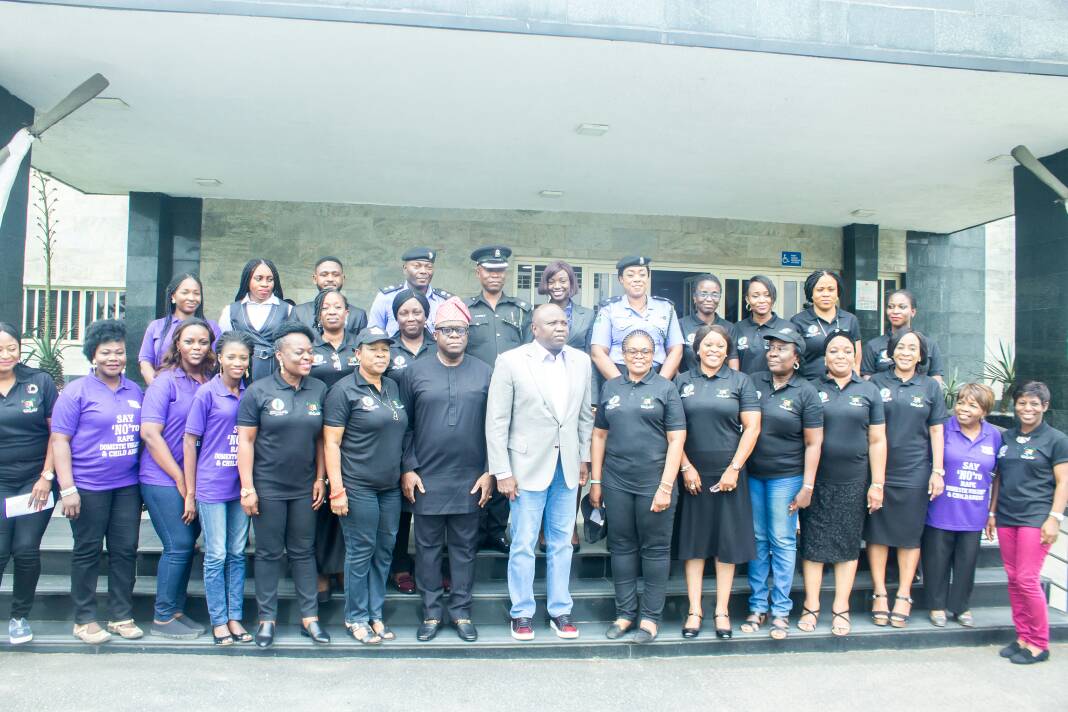 Following passion, funding is an essential life force for organizations like the DSVRT. Can you please tell us how you’re able to navigate the issue of insufficient funding
Following passion, funding is an essential life force for organizations like the DSVRT. Can you please tell us how you’re able to navigate the issue of insufficient funding
We have made modest achievements because of the political will in Lagos State to fight this menace. This administration, headed by His Excellency, the Governor of Lagos State, Mr. Akinwunmi Ambode, has ensured that these issues are addressed from both a proactive and reactive view point. The team is funded by the State Government, but as you would appreciate, we need a lot of resources in sustaining our advocacy. For instance, we have gotten support from Airtel and MTN as regards the USSD shortcode *6820#. We therefore use this medium to encourage corporate organizations and individuals to support this cause.
Men must join this fight. We need to face and accept the reality that a man speaking up does not make him weak; rather, it opens a door to the much needed healing.
It’s great to hear that two major telecom companies are supporters of the cause; hopefully more corporations will follow suit. Now, I’d like us to talk about male victims of domestic violence. In 2016, the DSVRT did something phenomenal by making masculinity and men the core focus of their campaign for their anniversary. Can we talk about that campaign and what you achieved?
Whilst the statistics show that women are most often than not the most vulnerable, we also have men that are survivors of Sexual and Gender Based Violence. In 2016, we started our Promoting Positive Masculinity movement, where we encouraged men to see themselves a flag bearers in the fight against SGBV. This was done from a scientific stand point. In 2015, we commissioned a research in partnership with the Nigeria Prisons. We were able to engage 140 convicts of sexual related offenses. The results from the research were very thought provoking. 80.5% of the convicts sampled said they were abused by age six, so they started to abuse others. This disclosed the “abused-abuser” trend. This made us see these issues in a different light. You see, we will not win this war if we continue to see men as only aggressors. Men must join this fight. Asides from working with organizations that work with men and also ensuring our advocacy, the campaign gave rise to our Kings Club initiative.
A lot of our men were abused at a young age and most keep it as a secret for the rest of their lives
The Kings Club Project seeks to create a sustainable social structure in secondary schools that will help debunk socio-cultural misconceptions, promote positive masculinity and bring about behavioral and attitudinal change in the minds of young boys in Lagos State. The project constitutes an alliance of trained young boys in schools to serve as peer educators and advocates of positive masculinity. Between November 2018 to December 2018, the team engaged a total number of 48 boys across the Lagos State Education District VI. 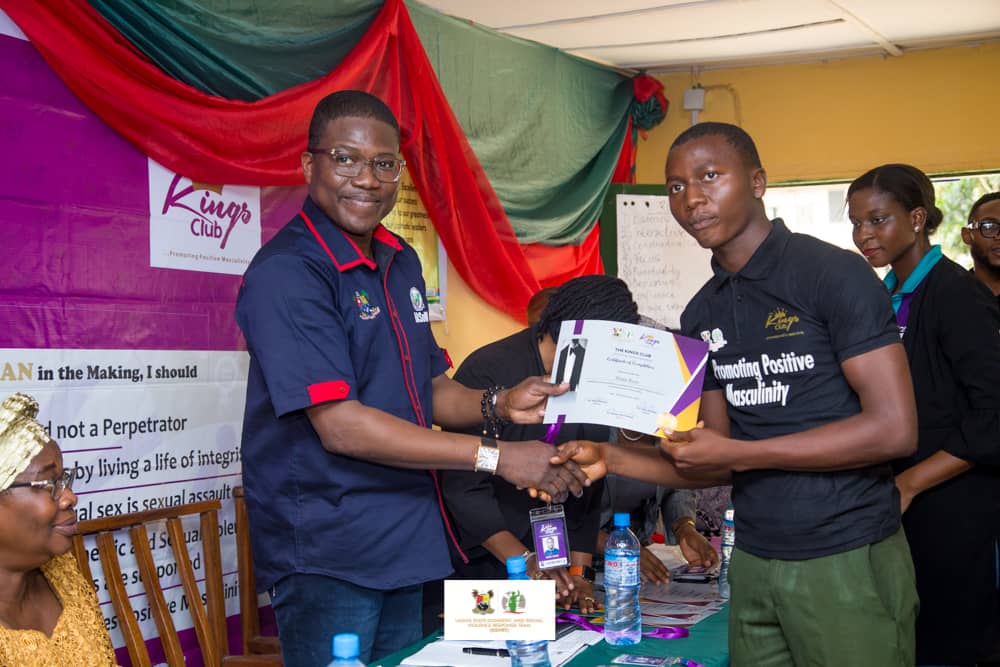
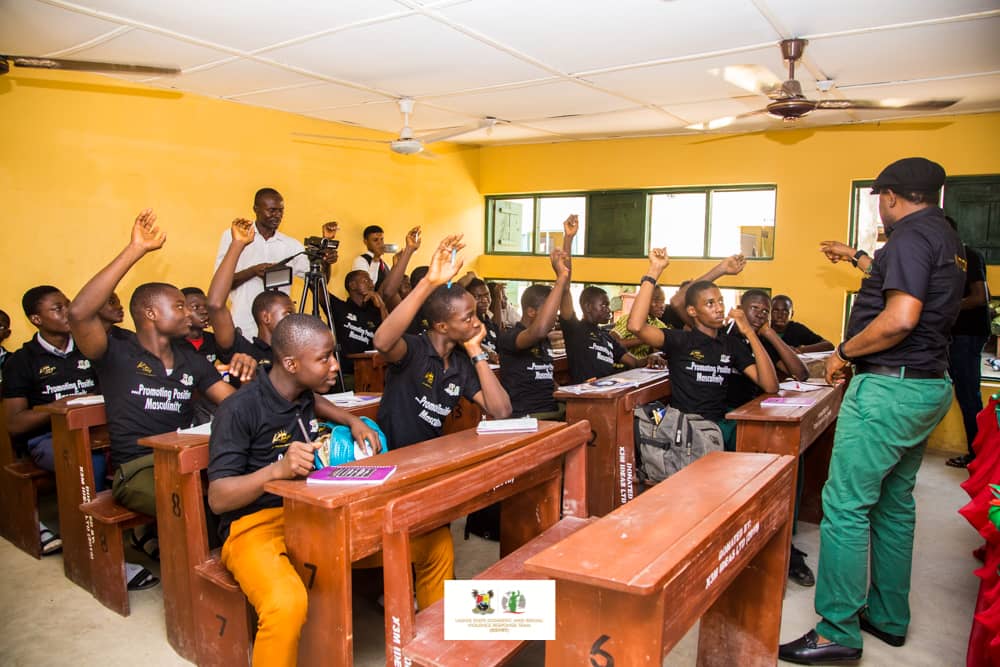
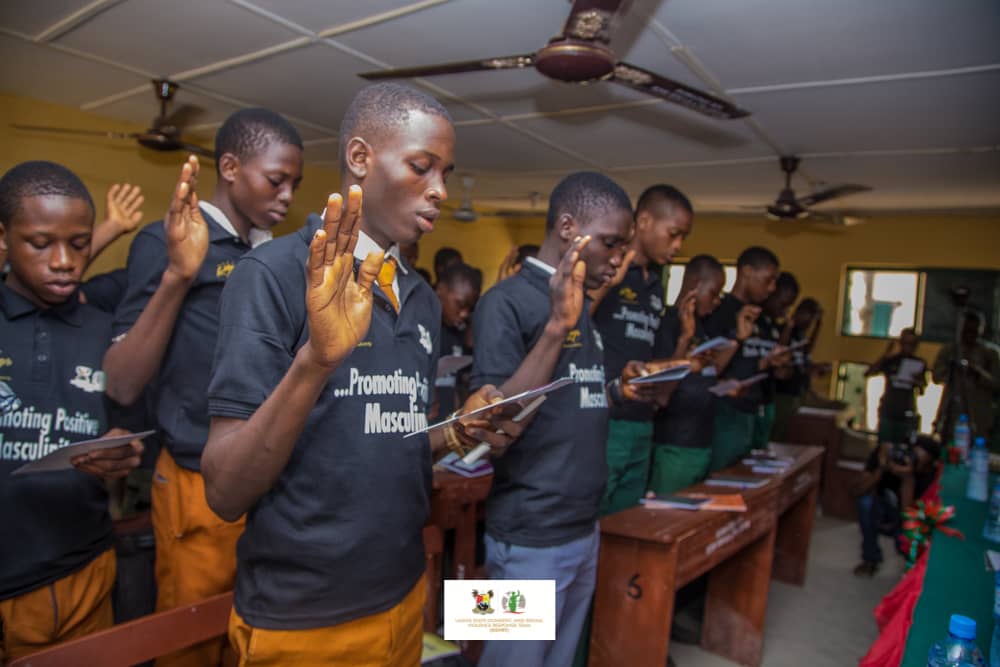 We now have clubs in ‘district 6, and the initiative is taking a life of its own. This initiative is being cascaded to all the other five Education Districts in Lagos State and the boys will be trained by a pool of all-male mentors.
We now have clubs in ‘district 6, and the initiative is taking a life of its own. This initiative is being cascaded to all the other five Education Districts in Lagos State and the boys will be trained by a pool of all-male mentors.
It something like a catch them young situation. It’s great to see that young boys are the focus of this project. A lot of times we hear men saying they want to see more advocacy for men, but they’re not actually stepping up to the plate. What are your thoughts on this?
We all have a role to play. There comes a time when we must realize that no one organization can appropriately respond to these issues. We must all join hands in preventing a potential national disaster from happening. A lot of our men were abused at a young age and most keep it a secret for the rest of their lives. This is a dangerous state to be in as it distorts the lens through which such a person views certain aspects of life. As a man, you have the right to speak up if you feel abused. It does not have to be only physical or sexual abuse, it could be emotional or verbal. We need to face and accept the reality that a man speaking up does not make him weak; rather, it opens a door to the much needed healing.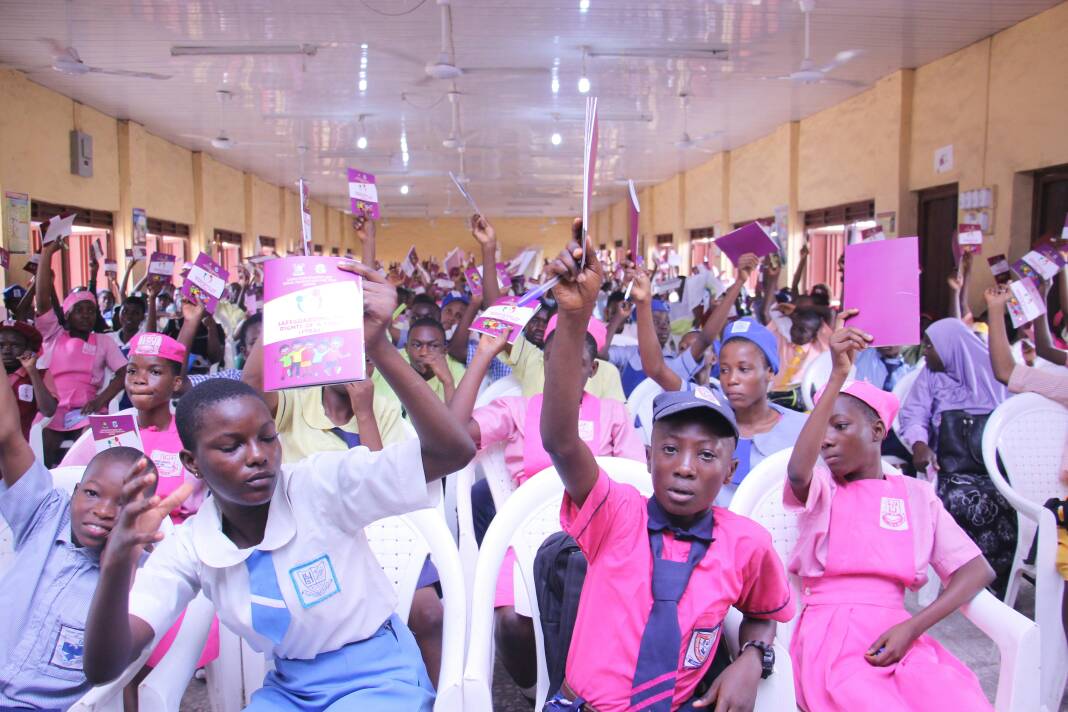
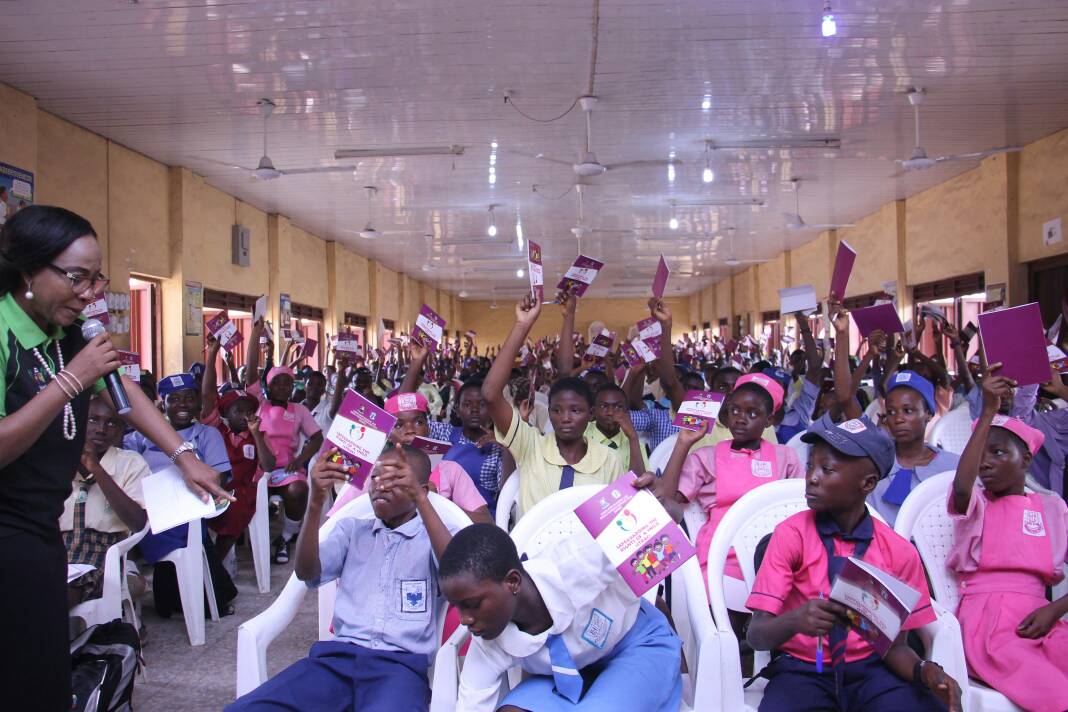
We believe that if children are adequately safeguarded, then we would, over time, reduce the number of children who are abused. Prevention is indeed better than cure
And healing is essential, because hurt people hurt people. You and your team have made incredible strides in your work. Your organization has reached thousands of young school children across different local governments in Lagos State. What drives you to continue to do what you do?
What drives me is simple: I see myself as a merchant of hope and so I cannot lose sleep until Lagos State (which is within my sphere of influence) is safe for every vulnerable person to exist in. We may not eradicate this menace 100%, however we can drive a culture shift that shapes the way issues of Sexual & Gender Based Violence is viewed by this current generation and those to come. We can achieve goals like being able to give survivors an opportunity to start their lives again and seek closure, drive accountability, guarantee justice, raise awareness to high levels, put an end to impunity, and most importantly, secure convictions that will send shivers down the spines of those who are hard bent on continuing to perpetuate this menace.
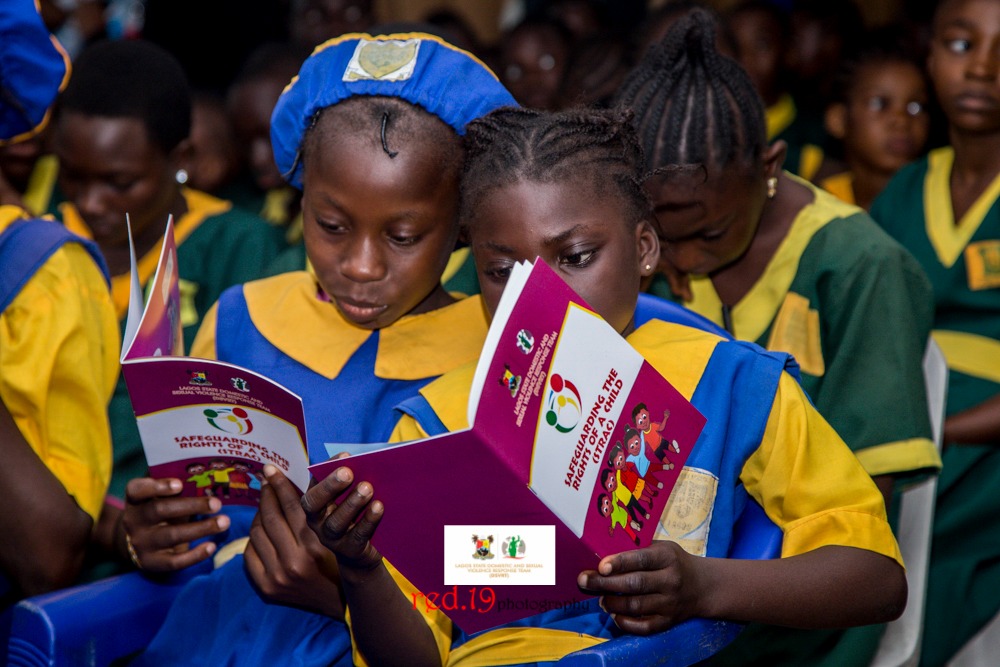 At DSVRT, we believe in safeguarding the rights of children. This is achieved by ensuring that children are empowered with information. They understand the difference between a good touch and a bad touch. They are able to set boundaries. They understand the process of grooming. They are informed of the different agencies they can report to, if it does happen. We teach them to remember it is not their fault, and that they are not to blame. We teach them to ensure the case is reported.
At DSVRT, we believe in safeguarding the rights of children. This is achieved by ensuring that children are empowered with information. They understand the difference between a good touch and a bad touch. They are able to set boundaries. They understand the process of grooming. They are informed of the different agencies they can report to, if it does happen. We teach them to remember it is not their fault, and that they are not to blame. We teach them to ensure the case is reported.
We do this through our Safeguarding the Rights of a Child workshops (STRAC) for primary school students and Smart Teens Advocacy Initiative (STAI) for secondary school students. We believe that if children are adequately safeguarded, then we would, over time, reduce the number of children who are abused. Prevention is indeed better than cure.
It sure is. We read so many horror stories on social media, and I can only imagine that these stories are but a small percentage of what goes through your office on a daily basis. What are some of the positive stories that show that all hope is not lost?
We have certain wins when we see clients move from victims, to survivors to advocates and ambassadors. We also see women being empowered, employers of labour after being able to access grants from the Lagos State Domestic and Sexual Violence Trust Fund. We follow up on a sexual violence case and judgment is given, wherein the defendant is found guilty and duly sentenced. Also, instances where we are able to provide psycho-social support for both client and alleged abuser, and during follow up, we see the couple is making progress. These are all the instances that make working in this space most rewarding.
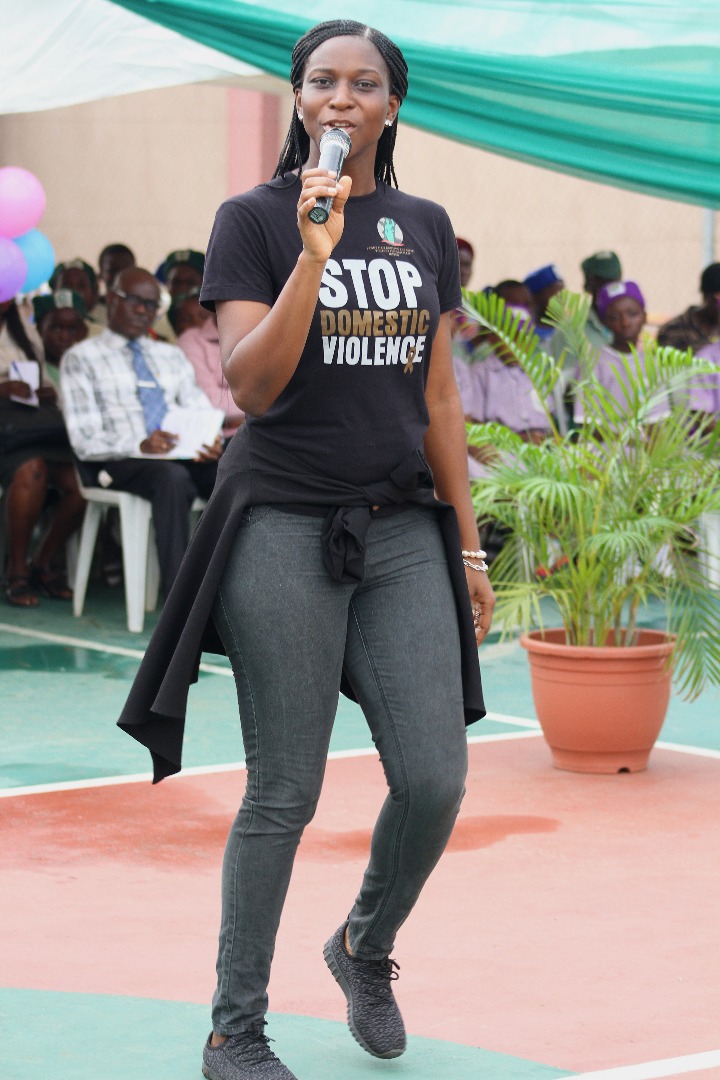
That’s truly amazing. I wonder if this would lead to a ricochet effect across the country. Are there corresponding organizations like the DSVRT outside of Lagos?
Yes. There are actually similar organizations in the Federal Capital Territory, Abuja, and in Delta State. We believe other states are already coming up with similar structures to enable them properly respond to Sexual and Gender Based Violence reports in their respective states.
We’re still a long way from the 36 states of the federation, but we’re glad for the baby steps. Please tell us how BellaNaija readers can help join the fight against domestic violence and sexual assault as we hope to eradicate this blight in our society.
BN readers are encouraged to use their various social media platforms to create awareness about these issues. Retweet posts, share, like, follow organisations working in this space, encourage people to speak up and get help. BN readers are encouraged to volunteer with relevant organisations working in these thematic areas.
BN readers are also encouraged to take this advocacy offline, invite organisations to your workplace or religious places of worship to sensitize members of your congregation on these issues. For those who have children, ensure their schools have safeguarding and child protection policies in place.
Similarly, we should not wait until a story starts to trend before people remember that these issues are real and should be of utmost concern to all of us. There are lots of organisations on social media who are active on these issues and constantly sharing tips and initiatives, we should join such conversations and help spread the word.
DSVRT social media handles are all @dsvrt. We can also be reached on our hotline: 0813-796-0048, or at [email protected]. Our website has a lot of resources as well www.dsvrtlagos.org.
Titilola, thank you so much for taking time out of your busy schedule to chat with BN. We are truly honoured. On behalf of the BN Team and BN readers across the world, please accept our heartfelt appreciation for your hardwork.


